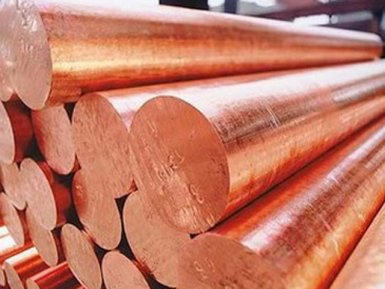Tu 24.4-33338597-007: 2015. Pipes made of refractory metals (molybdenum, tungsten, tantalum, niobium)

You are interested in TU24.4−33338597−007: 2015. «Pipes of refractory metals (molybdenum, tungsten, tantalum, niobium)» from the supplier company AvecGlob? Here you will find interesting information on this topic /
Application area
These specifications apply to refractory metal pipes
(molybdenum, tungsten, tantalum, niobium) according to TU 48−19−251−85, TU U 24.4−33338597−005: 2012, TU U 24.4−33338597−007: 2015
Assortment and nomenclature of pipes:
- Outer diameter: 0,7−48,0mm;
- Wall thickness: 0,07−2,0mm;
- Grades of alloys: MCH, MChVP, VM-1, CM10-VD, CM-6, HDTV, NbTs, Nb-VP.
Main characteristics of refractory metals
One of the main factors determining refractory metals is heat resistance. All metals in this class are characterized by a melting point above 2000 ° C. They are high in hardness, strength, and high resistance to factors such as thermal shock. This means that they will not experience cracking, expansion or buckling when re-cooling and heating.
Pipes from these metals are characterized by increased creep resistance, excellent thermal and electrical conductivity, and corrosion resistance, including at high temperatures.
Physical and chemical properties of refractory metal pipes
- High boiling point. The melting points of refractory metals are higher than the temperatures of all other metals except carbon, osmium and iridium;
- Structural strength. All such metals have a body-centered cubic crystal structure.
- Pipes made from refractory metals are easily oxidized, but oxidation can be controlled by creating stable oxide layers over the metal. All metals are resistant to acids.,
Supplier — AvekGlob Company — offers at affordable prices from the manufacturer pipes of refractory metals (molybdenum, tungsten, tantalum, niobium) according to TU 48−19−251−85, TU U 24.4−33338597−005: 2012 and TU U 24.4−33338597- 007: 2015.
The supplier guarantees the timely delivery of products to any address specified by the consumer.
Urgency of application
Pipes and bars of molybdenum and its alloys are widely used as thermocouple covers that measure temperatures in the range 1200−1800 ° C, cathodes of vacuum microwave equipment and devices, parts of combustion chambers of rocket engines, gas pipes and covers of fuel elements of nuclear power units on thermal neutrons.
Pipes and niobium rods are close to molybdenum because of their availability and significance, but they have higher plasticity, good weldability and non-volatility of oxides compared to other refractory metals. The field of application of pipes made of niobium and its alloys is similar to molybdenum, but the operating temperature range is lower and is 1000−1400 ° C; It is also possible to operate at negative temperatures — up to -196 ° C.
Tubes and rods of tungsten and its alloys are used in the combustion chambers of rocket engines and other parts of rocket equipment operating at temperatures of 2500−2700 ° C. This material is also used in the nuclear industry, mainly in the processes of sublimation of uranium.
Supplier — AvekGlob Company — offers to purchase pipes from refractory metals (molybdenum, tungsten, tantalum, niobium), which are manufactured in accordance with TU 48−19−251−85, TU U 24.4−33338597−005: 2012 and TU U 24.4−33338597 -007: 2015. Products can be bought at a price formed on the basis of European and world standards of production. Implementation is possible in bulk and retail, for regular customers, a flexible system of discounts operates.


